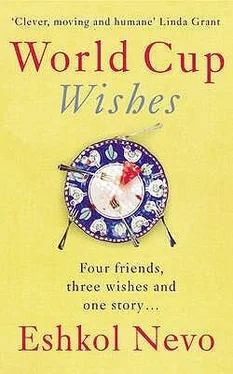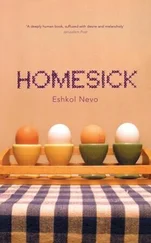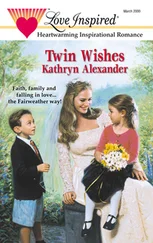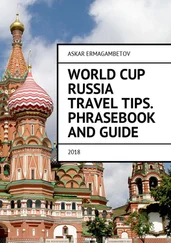She turned to look at him. For a brief moment, their eyes met, then looked away in embarrassment.
That’s it? he asked.
That’s it, she replied. There was no aggression in her voice. Or anger. Only the sort of silent determination that makes it clear there is no room for argument. And just like that, with two words, twenty-five years of joint creativity, joint failures, joint successes came to an end. The thread of their work that bound my parents together was cut, the bond that forced them to speak to each other in the printing house even if they never exchanged a word at home, that forced them to stand up and face life together after my little sister wasn’t born. That prevented them — even then — from taking more than a week’s vacation, because ‘it’s much easier to lose a client you have than to find a new one’.
*
After she left the printing house, my mother tried to make all her dreams come true at the same time.
She reconnected with her university friends after long years of not being in touch, when each was busy with her own family. They met once a week for breakfast, which lasted till evening, signed up for a series of lectures on the New Wave in French cinema and went on a heritage tour to Morocco, though not one of them was of Moroccan descent. Encouraged by her new-old friends, my mother dyed her hair blonde and wore it in a new style, and she still had the most beautiful face I had ever seen. She smiled more, wept more. And she took a course for local guides given by the Tourist Ministry, despite my father’s scepticism. He claimed that no tourist would want an old woman for a guide when he could have a young one.
But it turned out that most of the tourist groups that come to the city are made up of older people who actually feel more comfortable with a woman their own age who has perfect English and a sunny smile. And so, in less than a year, my mother became the star of local tourism. Every day, you could watch her striding along in her worn-green Teva sandals, trailed closely by an enthusiastic clutch of people wearing visored caps and carrying cameras. The route was always the same: from Yaffee Nof Street, through the Bahai Gardens, down to the German Colony and the port — and from there, a cable car ride back to Stella Maris. But my mother added a special stop to that regular route: 49 Haatzmaut Street. The official reason for the stop was that one of the Haganah’s gun caches used to be nearby, offering her an opportunity to relate the sort of hair-raising battle stories tourists from peaceful countries like so much. The unofficial reason for the stop was that the ground floor of the adjoining building, 47 Haatzmaut Street, was home to the Efroni printing house. My mother would appear there almost every day, stand with her back to the place she’d worked in for twenty-five years, turn on the small microphone attached to her collar and begin to talk about the history of gun caches.
She knew quite well that the owner of the printing house could see her from where he was sitting, and to be sure that he could hear her as well, she would raise her voice to almost a shout. Sometimes, when she was in the mood, she would end the visit by drawing the attention of her listeners to the fact that in the building next to where the cache had been was one of the first printing houses in the city of Haifa and an important local monument that had no peers.
Think about it, dear, she said to him with a laugh during a family dinner, there are now hundreds of people in Japan who have a picture of Efroni in their photo albums!
My father failed to see the humour. He thought that her public promotion of the printing house was meant to ridicule and remind him, in a particularly cruel way, that she now earned more money than he. Every day, he would swear to himself all over again that the minute he saw the front end of the tourist bus approaching, he would get up and go to the back of the printing house, behind the presses, to a place where the street wasn’t visible, and every day he remained rooted to his chair, watching her fragile back. And listening to her speak. How eloquent she was. And full of life. And knowledgeable. And how patient she was, and open to the group’s questions.
The truth is, your mother is a terrific guide, he admitted to me one of those Fridays after she’d gone off to bed. But he was not able to say it to her.
And she, for her part, never came into the printing house to say hello after she left. Not once.
And he, for his part, put pretty young designers in her chair, hoping that one day, she would come inside, see them and eat her heart out. But none of those young women lasted more than a month. He would pay them a pittance and tyrannise them regularly with tirades and complain that their work ethic was poor and they had no soul, no real love for the profession, and in the end they would simply get up and leave — which amazed him time after time, because ‘people used to know the value of a regular job’.
After four different designers had taken flight in a year, he ‘reached the conclusion that he didn’t really need a designer because he knew how to do the basic things himself, and what he didn’t know, he could always outsource’.
That’s what he told me when I asked why Mum’s chair was empty.
After a brief silence, during which he eyed me and the bundle of papers under my arm, he wondered aloud if someone like me, who had done a degree in lying-on-the-grass, even knows what outsourcing is.
I tossed out the Hebrew term, which I knew well from dozens of translations, and ignored the disdain inherent in his question (you didn’t drive all the way here to fight with him! I told myself).
To what do I owe this honour? he asked, browsing through some cheques lying on his desk. He always browsed through cheques when he was embarrassed, his large hands — the ones that had wrapped me in towels on that rainy day — sifting through them, straightening an errant crease.
I wanted to ask you something, I said and sat down.
I never thought otherwise, he said and signed a cheque. After all, you wouldn’t come here just to see how your father is, would you?
So how are you? I asked.
He looked up at me, a flicker of surprise in his eyes. Then immediately lowered his gaze to his desk again.
Business isn’t good now, not good at all, he said (when asked about himself, my father always gave an answer about his business. And business was never good. I can’t ever remember him being satisfied. Or happy. I once asked my mother about that, and she said, ‘Your father has many abilities, but the ability to be happy is not one of them.’).
These bloody terrorist attacks, he went on, people aren’t in the mood to spend money. And this street is deteriorating all the time. I got here one morning last week and found a fat junkie in the doorway. Tell me, aren’t junkies supposed to be thin? Three policemen could hardly move him!
So perhaps you should move up to the Carmel? I suggested the usual solution.
Perhaps I should, he gave the usual answer. Anyway, I have to find a buyer first. Rule number one, son, never buy with money you don’t have! he said, waving his finger at me. Rebuked, I said nothing. He, meanwhile, signed another cheque. All the printing machines were still except the ’72 Roland, which was plugging away. It was the first printing machine my father bought when he opened the business, and over the years, he refused to let anyone else get close to it. At the end of every day, he would oil it, clean it, wash it. And on several occasions, I even heard him talk to it.
Tell me, Dad, I said, trying to renew the conversation, how’s that writer, Miron-Mishberg?
Why do you ask? My father raised suspicious eyebrows above his glasses.
No reason, I said. I just suddenly remembered him.
Читать дальше












